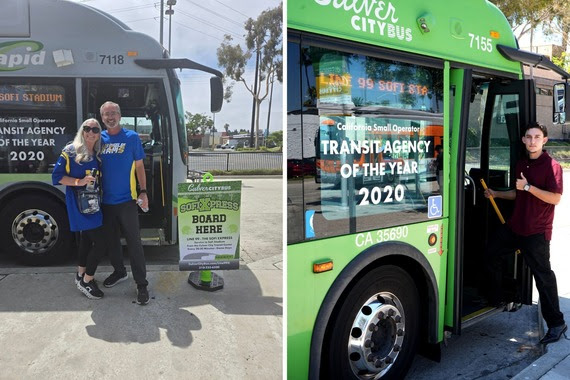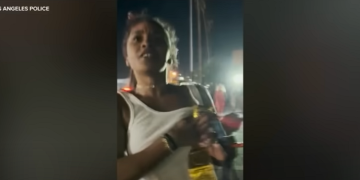As everyone looks forward and prepares for the upcoming Fourth of July weekend, the American Red Cross offers several safety steps people can follow to have a safe and enjoyable holiday weekend.
“We at Red Cross want to make sure that everyone has a safe Fourth of July weekend, and have compiled a few precautionary steps that families and friends can take to avoid any mishaps or injuries during the holiday,” said Jarrett Barrios, CEO for the Los Angeles Region American Red Cross. “They can also download our various free Apps, including the Red Cross Emergency app, to have important safety information right at their fingertips.”
WILDFIRE SAFETY As drought conditions continue and summertime heat touches Los Angeles, wildfires continue to pose a serious risk during the holiday weekend. To make sure your family and friends remain safe, follow our wildfires safety tips:
- If a fire occurs, listen to your local media for updates on the fire and be ready to evacuate quickly. Back your car into the garage or park it in an open space facing your direction of escape.
- Keep your pets in one room so you can find them quickly if you have to evacuate.
- Arrange for a temporary place to stay outside the threatened area.
- Keep your indoor air clean – close windows and doors to prevent the smoke outside from getting in your home.
- Use the recycle mode on the air conditioner in your home or car. If you don’t have air conditioning and it’s too hot to be inside, seek shelter somewhere else.
- If smoke levels are high, don’t use anything that burns and adds to air pollution inside such as candles, fireplaces and gas stoves.
FIREWORKS SAFETY The safest way to enjoy fireworks is to attend a public fireworks show displayed by professionals. Make sure you stay at least 500 feet away from the show. If someone choses to display fireworks at home, follow these safety steps:
- Never give fireworks to small children.
- Always follow the instructions on the packaging.
- Keep a supply of water close by as a precaution.
- Make sure the person lighting fireworks always wears eye protection.
- Light only one firework at a time and never attempt to relight “a dud.”
- Store fireworks in a cool, dry place away from children and pets.
- Never throw or point a firework toward people, animals, vehicles, structures or flammable materials.
- Leave any area immediately where untrained amateurs are using fireworks.
GRILLING SAFETY Every year people are injured while using charcoal or gas grills. Here are several steps to safely grill your favorite barbecue dishes:
- Always supervise a barbecue grill when in use.
- Never grill indoors – not in the house, camper, tent, or any enclosed area.
- Make sure everyone, including the pets, stays away from the grill.
- Keep the grill out in the open, away from the house, the deck, tree branches, or anything that could catch fire.
- Use the long-handled tools especially made for cooking on the grill to keep the chef safe.
HIGHWAY SAFETY Millions of people will be on the highways over the Fourth of July weekend. Below are a few travel safety tips to ensure you get to your destination safely.
- Buckle up your seat belts, observe speed limits.
- Do not drink and drive.
- Pay full attention to the road – don’t use a cell phone to call or text.
- Use caution in work zones.
- Clean the vehicle’s lights and windows to help driver’s visibility, especially at night. Turn the headlights on as dusk approaches, or during inclement weather.
BEACH SAFETY If holiday plans include visiting the beach, learn how to swim in the surf. Swim only at a beach with a lifeguard on duty and within the designated swimming area. Obey all lifeguards’ instructions and orders. While enjoying the water, keep alert and check the local weather conditions. Other safety steps include:
- Swim sober and always swim with a buddy. Make sure you have enough energy to swim back to shore.
- Have young children and inexperienced swimmers wear a U.S. Coast Guard-approved life jacket.
- Protect your neck – don’t dive headfirst. Walk carefully into open waters.
- Keep a close eye and constant attention to children and elderly on the beach. Even in shallow water, wave action can cause someone to lose their footing.
- Watch out for aquatic life. Water plants and animals may be dangerous.
- Stay at least 100 feet away from piers and jetties since rip currents often exist near these structures
- If you are caught in a rip current, try not to panic. Swim parallel to the shore until you are out of the current. Once you are free, turn and swim toward shore. If you can’t swim to the shore, float or tread water until you are free of the rip current and then head toward shore.
EMERGENCY APP People can download the free Red Cross Emergency App to receive severe weather watches and warnings in their local area, at travel destinations and where loved ones live. “Family Safe” is a unique feature that allows app users to notify family and friends who are in an area affected by an emergency or disaster. First Aid steps for situations such as heart attacks, heat-related emergencies and water safety information are also included. The content is available in English and Spanish. The app can be downloaded from app stores by searching for “American Red Cross” or by going to redcross.org/apps.
How to Help. We need your help. These are large relief responses affecting thousands of people. Entire families have lost their homes and everything they own. We need your support now to help people affected by disasters big and small. People can help by donating to Red Cross Disaster Relief to support disasters big and small by visiting redcross.org, calling 1-800-RED CROSS or texting the word REDCROSS to 90999 to make a $10 donation. Donations to Disaster Relief will be used to prepare for, respond to and help people recover from disasters big and small. Financial donations are the quickest and best way to get help to the people who need it most.
About the American Red Cross:
The American Red Cross shelters, feeds and provides emotional support to victims of disasters; supplies about 40 percent of the nation’s blood; teaches skills that save lives; provides international humanitarian aid; and supports military members and their families. The Red Cross is a not-for-profit organization that depends on volunteers and the generosity of the American public to perform its mission. For more information, please visit redcross.org or cruzrojaamericana.org, or visit us on Twitter at @RedCross. Please use this hashtag for tweets #firesafety




















